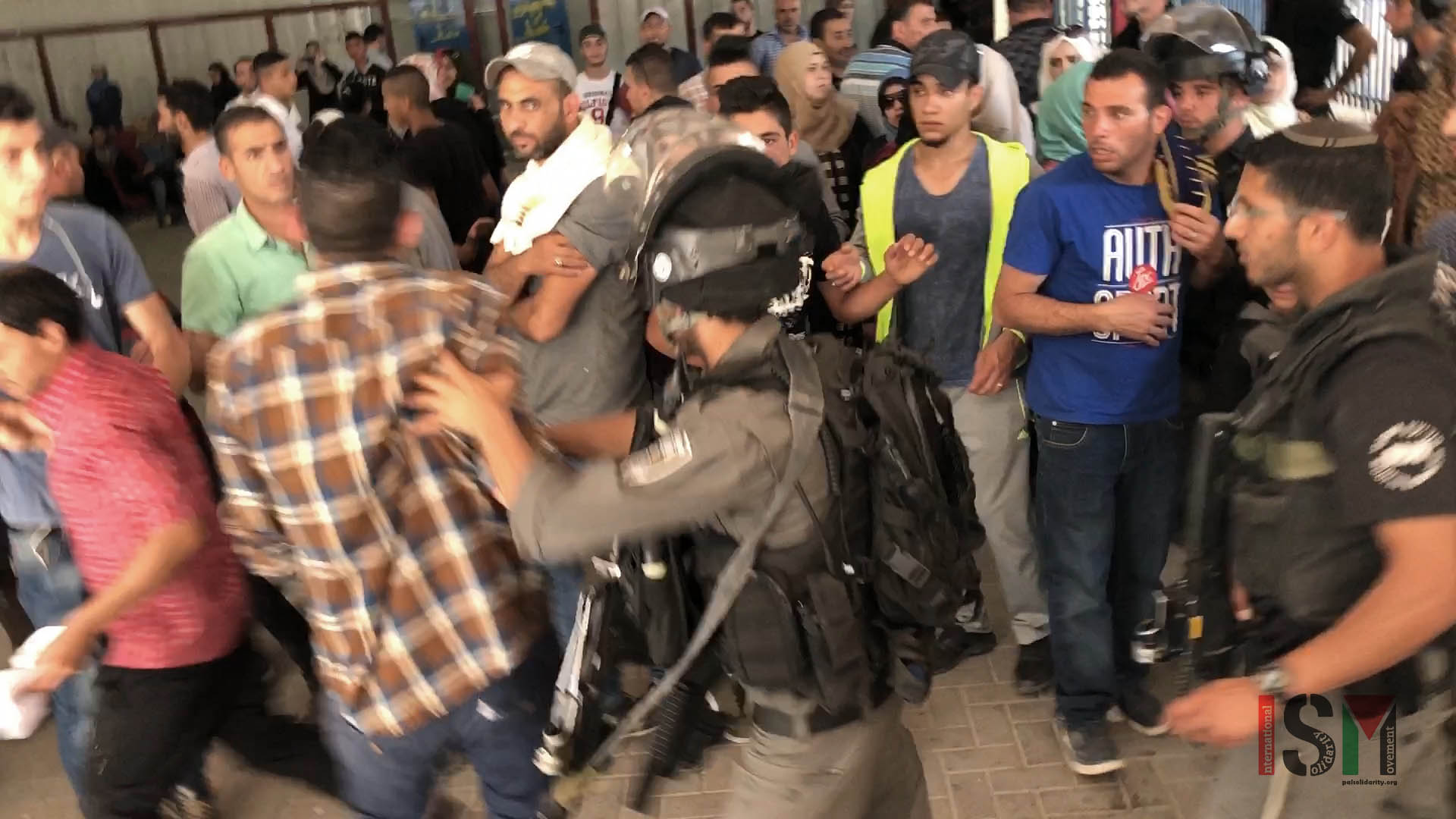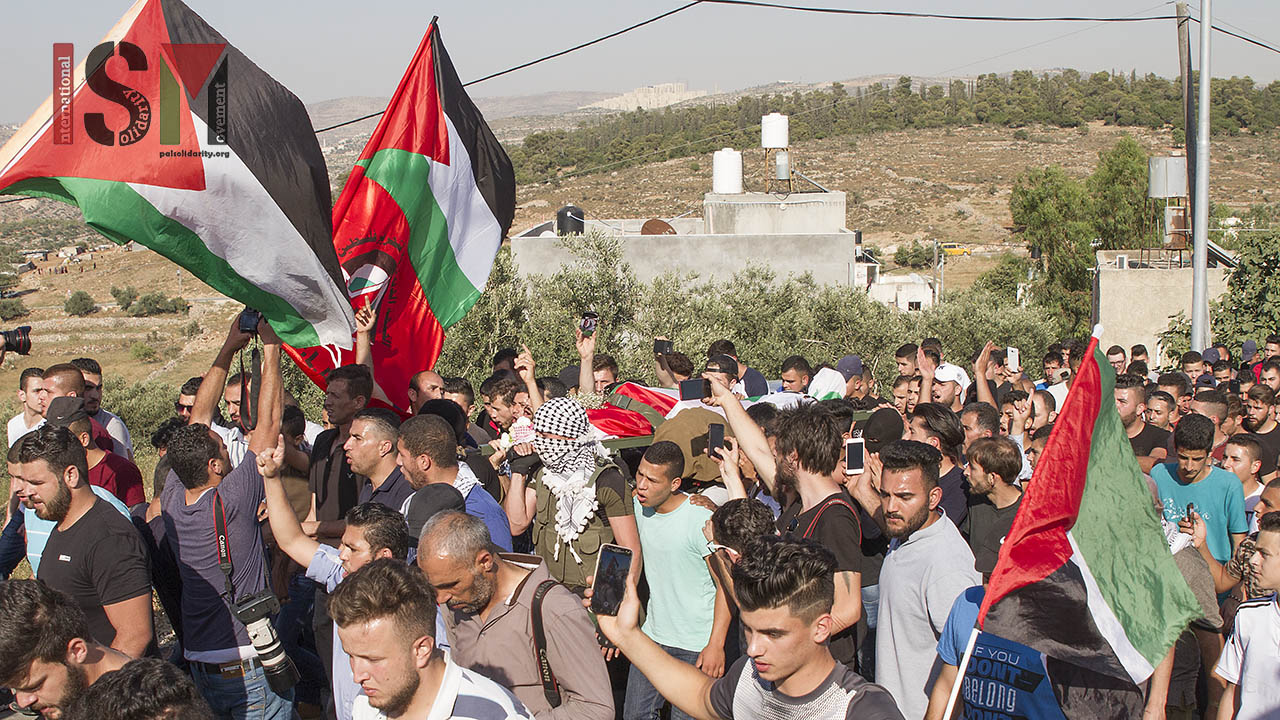Category: Reports
-
Israeli forces harass and assault Palestinians at Qalandiya checkpoint
Throughout the morning of Friday 8th June, many Palestinians passed through Qalandiya checkpoint into Israeli-occupied East Jerusalem, in order to pray at the Al-Aqsa mosque. The Israeli government allows a slight easing of the travel restrictions that ban most Palestinians in the West Bank from entering Jerusalem, only for Friday prayers during the month of…
-
Funeral held in Nabi Saleh for Izz al-Deen Tamimi, shot dead by Israeli soldiers
The funeral of 21 year old Izz al-Deen Tamimi was held yesterday afternoon on Wednesday 6th June in Nabi Saleh, a village north of Ramallah. Israeli soldiers shot the young man with three live bullets in the early morning, hitting his neck and chest. Israeli undercover agents and soldiers had entered the neighbouring village…
-
Protestors in Ramallah honor Razan Al Najjer, young medic executed by Israeli forces in Gaza
3rd June, 2018 | International Solidarity Movement, Ramallah team | Ramallah, occupied Palestine Yesterday at midday, hundreds of protestors marched through the streets of Ramallah to mourn the execution of Razan Al Najjer, the 21-year-old medic who was executed by Israeli forces in Gaza on Friday. Members of the Palestinian Medical Relief Society from across…


